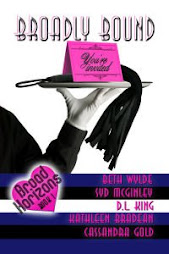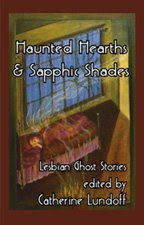The universe of erotica is small. Editors, writers, reviewers, and publishers know each other, sometimes personally, almost always professionally. We chat on lists. We meet at conferences. We go to readings. I know erotica writers around the world and run into them online on all sorts of lists. Ever hear of six degrees of separation? There are only three degrees in erotica. The world of queer erotica is even smaller.
Before you submit your work anywhere, and potentially become a cautionary tale or Internet legend for all the wrong reasons, let me offer you a few tips:
What you owe (yes, owe) to editors:
A professional attitude.
Your cover letter is a job application. It is a business letter. Your cats, kids, Mom, teachers, and hobbies have no place in a cover letter unless something about them makes you uniquely qualified to write the story you wrote, and that only counts if your story is nonfiction. If your writing teacher knows a publisher personally, s/he should feel free to mention you'll be submitting something, but don't name drop in your letter. It doesn't magically improve your writing. Do not mention how many times your story has been rejected before. Do not mention the great conspiracy to keep you from being published. Do not display other types of paranoia, such as fear that your story idea will be stolen. Do not use threatening language. Do not demand anything.
Follow submission guidelines. They apply to you. If the editors says Courier font, even if you think it's ugly, use it. If the guidelines say double spaced, double space your submission. If the guidelines say two pages, send only two. Really. This is not the time to show an editor that you're going to be a pain in the butt. This is not the time to be artsy-fartsy or a diva. Yeah, yeah, you're sensitive and all that crap. Get over it. If you can't, you aren't grown up enough to play with the big kids. Keep writing for your own pleasure, but until you learn that the art is on the page, not in your emotions, don't submit for publication.
Use spellcheck, but also use a dictionary. Just because it's spelled right doesn't mean it's the right word.
Workshop your writing with a critique group that offers constructive criticism before you submit it to a publisher. Your Mom loves you, your teachers don't want to crush your dreams, and few of your friends have a solid grasp of grammar, so put your work in front of people who are willing to tell you the truth. If you get very upset when people say negative things about your writing, you aren't ready to be published.
Don't be mysterious or vague. It's annoying. It's also poor writing.
Submit your story to the right editor/publisher/imprint. Think of it this way - you wouldn't walk into a fast food place if you were shopping for shoes. So why would you submit your book about gardening to a company that only publishes cookbooks? And yet, I hear all the time about writers who submit mystery novels to science fiction imprints. About now, you might be wondering how to you find the right publisher for your story. Here's the big clue: Read. Read what the publisher prints. If they only publish heterosexual erotica, don't send them queer erotica. If your story is romantic erotica, don't send it to an imprint that specializes in hardcoreBDSM. You want your story to get into the hands of someone who understands and appreciates your sub genre, and, more importantly, is in a position to buy it.
Take defeat gracefully. Sure, if you get a rejection letter, feel free to have the blues for a few days. Then read through your story again, fix any errors you missed the first time (there's always at least one) and send it out to someone else. Do not fire off a rude letter to the editor. In fact, don't contact the editor at all. Do not tell the world that the editor is unprofessional / a hack/ an idiot/ etc. Do not have a temper tantrum. Do not resubmit essentially the same story to the same editor six months later. And yes, all of this applies even if the rejection letter pissed you off -especially if the rejection letter pissed you off. Set the rejection aside until you can face it with some detachment. If you were lucky enough to get a rejection letter that mentioned the reasons for the rejection, take time to really think through what was said. If the criticism fits, take it as helpful advice, fix the problem, and then submit the story elsewhere. Your story was rejected, not you.
What the publisher owes you during the submission process:
Nothing.
You're the one applying for the job, remember? Sure, manners are nice, feedback is great, acceptance is wonderful, but no one owes it to you.
Thursday, July 19, 2007
Subscribe to:
Post Comments (Atom)















.jpg)











No comments:
Post a Comment